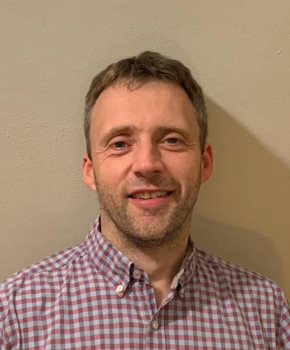Events
AI in Safety Critical Industries

AI in Safety Critical Industries
Date: Thursday 24 November 2022 14:00 - 15:00
Location: Graduate Centre GC102, QMUL or MS Teams
Register at: teams.microsoft.com/l/meetup-join/19%3ameeting_ZjIzY2E4Yz...
This is an invited seminar for EMS702 Statistical Thinking and Applied Machine Learning. However, anyone who are interested in Air Mobility, UAVs, and airspace regulations, please do come and discuss with Marc for potential collaborations after the talk.
Abstract. Project Bluebird is a 5 year industry-academic partnership between National Air Traffic Services (NATS), the Alan Turing Institute and Exeter University aiming to deliver the world's first artificial intelligence system to control a sector of airspace in live trials.
In this seminar, I will describe and discuss the major elements of the project, and how they are impacted by the safety critical nature of air traffic control. This will include the data requirements, the digital twin (simulator) of UK airspace and the different approaches to AI agent design. I will describe rules based, optimisation based and reinforcement learning agents, along with aspects of explainability, validation and regulation.
Bio-sketch: Dr. Marc Thomas is a researcher and data scientist at NATS, the UK's leading provider of air traffic control services. He is the industry lead in building a digital twin of UK airspace as part of Project Bluebird, a 5 year partnership between NATS, the Alan Turing Institute and Exeter University aiming to deliver the world's first artificial intelligence system to control a sector of airspace in live trials (www.turing.ac.uk/research/research-projects/project-blueb...). At NATS, he has previously conducted research into biometrics, eye-tracking and speech-to-text. Prior to joining NATS, Marc worked in healthcare, academia and industry. He first trained as a medical doctor and worked for 8 years in the NHS before studying physics, completing a PhD and postdoctoral research in Theoretical Physics at Southampton University, where he studied the signatures of Higgs Physics, Supersymmetry and Dark matter at the Large Hadron Collider in CERN. In 2016 he moved to industry as a data scientist, joining a start-up where he used signal processing and machine learning to develop real-time fault detection and predictive maintenance algorithms for the rail industry using novel IoT technology.
Dr. Thomas holds degrees in Medicine (MBBS), Theoretical Physics (BSc, PhD) and Data Science and Artificial Intelligence (MSc) as well as professional medical qualifications.

